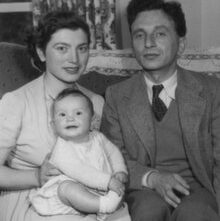Halina Moss – Video Interview
Halina Moss – Video Interview ☰ Life Before The War Life During The War Settling In Integration Reflection On Life Video Interview Home Halina Moss Halina Moss – Video Interview Return to Top ↑ Life Before The War Life During The War Settling In Integration Reflection On Life Video Interview Share this page Toggle High… Continue Reading Halina Moss – Video Interview

